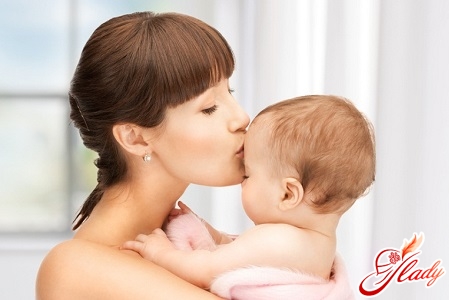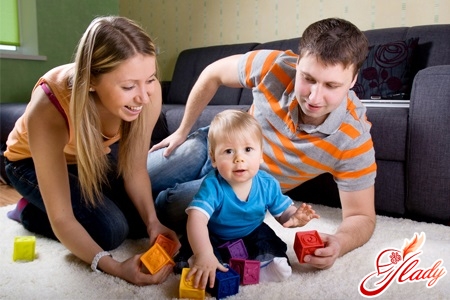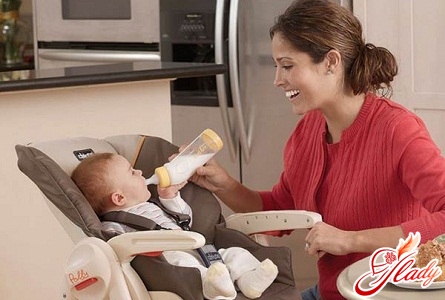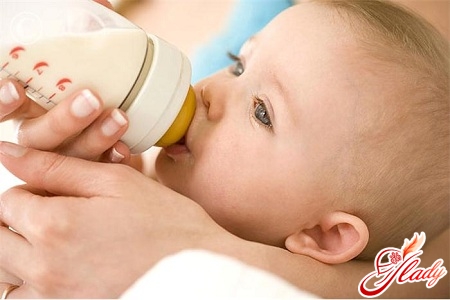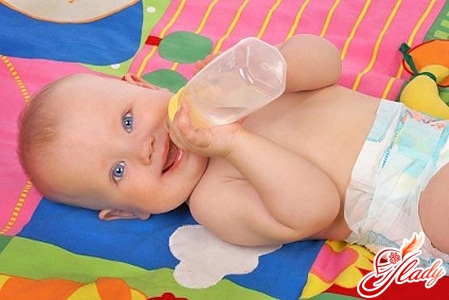 Remember how recently you bought the mostbeautiful and anatomically correct pacifiers? And now you are faced with another question - how to wean a child off a pacifier? This process is very important and should not be approached lightly. A pacifier is only a seemingly harmless thing, but in fact, a pacifier means a lot to a child and seriously affects the child's development and peace of mind. As everyone has long known, the sucking reflex is one of the strongest and most important reflexes in a baby. The sucking reflex manifests itself even during intrauterine development. Specialists conducting ultrasound examinations of pregnant women can very often observe how the baby sucks its finger, and at a fairly early stage of pregnancy. And the baby does it for a reason. Sucking a finger stimulates the development of the digestive system, in addition, it allows you to acquire the skill of sucking, which is simply vital for a child after birth in order to receive mother's milk. In addition, the sucking process has a significant calming effect on the baby's nervous system. Surely each of us has observed how quickly a desperately crying baby calms down after receiving a pacifier. After the pacifier is in the baby's mouth, he instantly switches from the source of irritation to the usual act of sucking. A pacifier helps the child to relax and even fall asleep - that's why many children insistently demand a pacifier before going to bed. A pacifier is almost always perceived by the baby as something very pleasant, so dependence on the pacifier is formed very, very quickly. It is widely believed that sucking on a pacifier often leads to crooked teeth and disruption of the normal bite. However, doctors believe that the problem is artificially inflated and problems with the bite due to sucking on a pacifier occur extremely rarely. And the pacifier cannot affect the growth of permanent teeth in any way. In addition, sucking on a pacifier is often replaced by sucking a finger, which has a much more negative effect on the bite. Therefore, parents should think carefully about when to wean a child off a pacifier. In addition, if the child simply holds the pacifier in the mouth, the risk of pathological disorder is almost zero. But if the child sucks the pacifier intensively, problems with baby teeth may arise - but only if we are talking about children over one year old. In this case, you should immediately contact a pediatric dentist and decide together when to wean the child off the pacifier. Moreover, the dentist can also give very valuable advice on how to wean a child off a pacifier. Many mothers have been making the same mistake for decades - dipping the pacifier in sweet water or syrup. Remember that such a measure not only further increases the child's addiction to the pacifier, but also negatively affects the condition of the teeth, provoking the occurrence of caries. As mentioned above, each mother must decide for herself when to wean the child off the pacifier, there are several cases when it is necessary to urgently wean the child off the pacifier:
Remember how recently you bought the mostbeautiful and anatomically correct pacifiers? And now you are faced with another question - how to wean a child off a pacifier? This process is very important and should not be approached lightly. A pacifier is only a seemingly harmless thing, but in fact, a pacifier means a lot to a child and seriously affects the child's development and peace of mind. As everyone has long known, the sucking reflex is one of the strongest and most important reflexes in a baby. The sucking reflex manifests itself even during intrauterine development. Specialists conducting ultrasound examinations of pregnant women can very often observe how the baby sucks its finger, and at a fairly early stage of pregnancy. And the baby does it for a reason. Sucking a finger stimulates the development of the digestive system, in addition, it allows you to acquire the skill of sucking, which is simply vital for a child after birth in order to receive mother's milk. In addition, the sucking process has a significant calming effect on the baby's nervous system. Surely each of us has observed how quickly a desperately crying baby calms down after receiving a pacifier. After the pacifier is in the baby's mouth, he instantly switches from the source of irritation to the usual act of sucking. A pacifier helps the child to relax and even fall asleep - that's why many children insistently demand a pacifier before going to bed. A pacifier is almost always perceived by the baby as something very pleasant, so dependence on the pacifier is formed very, very quickly. It is widely believed that sucking on a pacifier often leads to crooked teeth and disruption of the normal bite. However, doctors believe that the problem is artificially inflated and problems with the bite due to sucking on a pacifier occur extremely rarely. And the pacifier cannot affect the growth of permanent teeth in any way. In addition, sucking on a pacifier is often replaced by sucking a finger, which has a much more negative effect on the bite. Therefore, parents should think carefully about when to wean a child off a pacifier. In addition, if the child simply holds the pacifier in the mouth, the risk of pathological disorder is almost zero. But if the child sucks the pacifier intensively, problems with baby teeth may arise - but only if we are talking about children over one year old. In this case, you should immediately contact a pediatric dentist and decide together when to wean the child off the pacifier. Moreover, the dentist can also give very valuable advice on how to wean a child off a pacifier. Many mothers have been making the same mistake for decades - dipping the pacifier in sweet water or syrup. Remember that such a measure not only further increases the child's addiction to the pacifier, but also negatively affects the condition of the teeth, provoking the occurrence of caries. As mentioned above, each mother must decide for herself when to wean the child off the pacifier, there are several cases when it is necessary to urgently wean the child off the pacifier:
Methods of weaning the child from the nipple
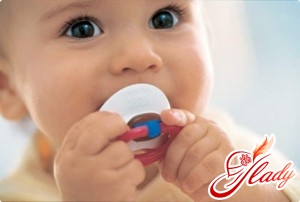 So, the time comes when the child needs to beотучать от соски. У каждой мамы есть свои причины на это, но каковы бы они не были, мама должна быть готовой к тому, что этот процесс может занять значительное время и нервов. Не стоит пытаться найти какую – то универсальную инструкцию по отучению ребенка от пустышки – только зря потратите время. Каждый ребенок индивидуален, и мама обязательно должна учитывать все психологические особенности именно своего крохи. В данной статье даны лишь общие рекомендации, призванные помочь маме сориентироваться, с чего необходимо начинать отучение ребенка от соски. Первый вопрос, который волнует всех родителей, это то, в каком возрасте необходимо начинать отучать ребенка от пустышки. Детские психологи не рекомендуют делать это ранее, чем в полтора года. Однако некоторые детки и в три года психологически не способны безболезненно отказаться от соски и в три годика. Не стоит ориентироваться на примеры знакомых и слушать советы более опытных мама о том, как отучить ребенка от соски – их опыт может помочь вам далеко не всегда. Как правило, внимательная мама может довольно точно определить, когда ребенка отучать от соски, наблюдая за его поведением. Детские психологи и педиатры различают два вида методики того, как отучить ребенка от соски – постепенная и резкая. Какая методика подойдет для вашего малыша – решать только вам. Достаточно разумным решение попробовать сначала резкую методику, а если не получится – применить постепенную методику отучения от пустышки. Отлучение малыша от пустышки по щадящей медленной методике менее травматично, а значит, может применяться практически в любом возрасте. Однако обязательно учитывайте тот факт, что для того, чтобы ребенок полностью отвык от пустышки, вам понадобится не менее 3 – 4 месяцев, поэтому начинайте процесс отучения заблаговременно. Самое главное правило, на котором основывается постепенная методика – не давайте ребенку пустышку всякий раз, как только он заплачет. Постарайтесь успокоить малыша каким – либо другим способом, например, отвлечь его внимание, взять на руки или просто приласкать. Возможно, ребенок не успокоится немедленно, но не стоит сразу же сдаваться и давать ему соску. Также старайтесь, чтобы ребенок не сосал пустышку без особой на то нужды. Соска на период отучения должна даваться ребенку только в случае действительно крайней необходимости – если малыш напуган, плохо себя чувствует и прочие веские причины. И сразу же после того, как кроха прекратит плакать – отвлечется или уснет, немедленно заберите у него пустышку, так чтобы он этого не заметил. Старайтесь не хранить пустышку не только в зоне досягаемости, но и в поле зрения ребенка. Постепенно ребенок научится значительную часть времени обходиться без пустышки. После того, как ребенок прекратит испытывать потребность в сосании пустышки в дневное время, необходимо начинать отучать ребенка засыпать с пустышкой. Как отучить ребенка от пустышки? Делается это по тому же принципу, что и отучение днем. Перед сном старайтесь успокоить ребенка другими способами – покачиванием на руках, поглаживанием спинки, песенкой. Резкое отучение от соски предпочтительно у детей более старшего возраста, которые уже сознательно контролируют свои действия. Многие мамы просто выбрасывают пустышку, ничего не объясняя малышу, и не обращают внимания на его крики. Однако подобный метод также способен достаточно сильно травмировать хрупкую детскую психику. И даже резкое отучение от пустышки все же требует некоторой подготовки со стороны родителей. Сначала вы должны ограничить сосание пустышки вне дома, например, в магазине или на прогулке. Просто не берите с собой пустышку, мотивируя это малышу тем, что вы забыли ее дома. Потом не давайте пустышку во время игр, просмотра мультиков или купания. Свои действия подкрепляйте пояснениями о том, что малыш уже большой и вскоре ему придется отказаться от пустышки полностью. Это поможет малышу постепенно привыкнуть к мысли о том, что с пустышкой вскоре придется проститься навсегда. Обязательно устройте маленький праздник в честь отказа от пустышки. Купите малышу какой– либо подарок, который вы ему вручите в обмен на пустышку. Заранее выберите дату для праздника, однако помните, что у маленьких деток совсем другое восприятие времени и даже «завтра» им кажется чем – то далеким. Вы можете придумать какую – нибудь красивую сказку, например, про сказочную белочку, которой очень нужна соска для своего маленького бельчонка. Как правило, детки в таком возрасте очень отзывчивы и с готовностью откликаются на призыв о помощи. А вот легенда о том, что соску украла собака, может вызвать у малыша не только обиду, но и злость. Также существует несколько рекомендаций, которые помогут вам сделать процесс отучения ребенка от пустышки наименее безболезненным:
So, the time comes when the child needs to beотучать от соски. У каждой мамы есть свои причины на это, но каковы бы они не были, мама должна быть готовой к тому, что этот процесс может занять значительное время и нервов. Не стоит пытаться найти какую – то универсальную инструкцию по отучению ребенка от пустышки – только зря потратите время. Каждый ребенок индивидуален, и мама обязательно должна учитывать все психологические особенности именно своего крохи. В данной статье даны лишь общие рекомендации, призванные помочь маме сориентироваться, с чего необходимо начинать отучение ребенка от соски. Первый вопрос, который волнует всех родителей, это то, в каком возрасте необходимо начинать отучать ребенка от пустышки. Детские психологи не рекомендуют делать это ранее, чем в полтора года. Однако некоторые детки и в три года психологически не способны безболезненно отказаться от соски и в три годика. Не стоит ориентироваться на примеры знакомых и слушать советы более опытных мама о том, как отучить ребенка от соски – их опыт может помочь вам далеко не всегда. Как правило, внимательная мама может довольно точно определить, когда ребенка отучать от соски, наблюдая за его поведением. Детские психологи и педиатры различают два вида методики того, как отучить ребенка от соски – постепенная и резкая. Какая методика подойдет для вашего малыша – решать только вам. Достаточно разумным решение попробовать сначала резкую методику, а если не получится – применить постепенную методику отучения от пустышки. Отлучение малыша от пустышки по щадящей медленной методике менее травматично, а значит, может применяться практически в любом возрасте. Однако обязательно учитывайте тот факт, что для того, чтобы ребенок полностью отвык от пустышки, вам понадобится не менее 3 – 4 месяцев, поэтому начинайте процесс отучения заблаговременно. Самое главное правило, на котором основывается постепенная методика – не давайте ребенку пустышку всякий раз, как только он заплачет. Постарайтесь успокоить малыша каким – либо другим способом, например, отвлечь его внимание, взять на руки или просто приласкать. Возможно, ребенок не успокоится немедленно, но не стоит сразу же сдаваться и давать ему соску. Также старайтесь, чтобы ребенок не сосал пустышку без особой на то нужды. Соска на период отучения должна даваться ребенку только в случае действительно крайней необходимости – если малыш напуган, плохо себя чувствует и прочие веские причины. И сразу же после того, как кроха прекратит плакать – отвлечется или уснет, немедленно заберите у него пустышку, так чтобы он этого не заметил. Старайтесь не хранить пустышку не только в зоне досягаемости, но и в поле зрения ребенка. Постепенно ребенок научится значительную часть времени обходиться без пустышки. После того, как ребенок прекратит испытывать потребность в сосании пустышки в дневное время, необходимо начинать отучать ребенка засыпать с пустышкой. Как отучить ребенка от пустышки? Делается это по тому же принципу, что и отучение днем. Перед сном старайтесь успокоить ребенка другими способами – покачиванием на руках, поглаживанием спинки, песенкой. Резкое отучение от соски предпочтительно у детей более старшего возраста, которые уже сознательно контролируют свои действия. Многие мамы просто выбрасывают пустышку, ничего не объясняя малышу, и не обращают внимания на его крики. Однако подобный метод также способен достаточно сильно травмировать хрупкую детскую психику. И даже резкое отучение от пустышки все же требует некоторой подготовки со стороны родителей. Сначала вы должны ограничить сосание пустышки вне дома, например, в магазине или на прогулке. Просто не берите с собой пустышку, мотивируя это малышу тем, что вы забыли ее дома. Потом не давайте пустышку во время игр, просмотра мультиков или купания. Свои действия подкрепляйте пояснениями о том, что малыш уже большой и вскоре ему придется отказаться от пустышки полностью. Это поможет малышу постепенно привыкнуть к мысли о том, что с пустышкой вскоре придется проститься навсегда. Обязательно устройте маленький праздник в честь отказа от пустышки. Купите малышу какой– либо подарок, который вы ему вручите в обмен на пустышку. Заранее выберите дату для праздника, однако помните, что у маленьких деток совсем другое восприятие времени и даже «завтра» им кажется чем – то далеким. Вы можете придумать какую – нибудь красивую сказку, например, про сказочную белочку, которой очень нужна соска для своего маленького бельчонка. Как правило, детки в таком возрасте очень отзывчивы и с готовностью откликаются на призыв о помощи. А вот легенда о том, что соску украла собака, может вызвать у малыша не только обиду, но и злость. Также существует несколько рекомендаций, которые помогут вам сделать процесс отучения ребенка от пустышки наименее безболезненным:
- If you notice that the baby is sucking a pacifier, neitherDo not be ashamed of him, and certainly do not scold him. Swearing when raising children has never been effective, especially with regard to young children. But praise can be your good assistant in weaning from the nipple. Children appreciate the praise and approval of their parents.
- In no event, it is impossible that the weaning of the baby fromdummies occurred at one time with other significant events for him - a trip to the kindergarten, moving, leaving the mother to work and so on. The most important thing that is simply necessary for the child's peace of mind and its harmonious development is stability. Therefore, do not put the double burden on the child's psyche.
- Never try to wean the baby from the nipple during his illness. This will not only have a traumatic effect on the child's psyche, but can actually worsen the child's health.
- Do not entrust the child's tearing from the nipple to relatives - the father or grandmother. The child needs support of the mother in this difficult period of his life.
- If you decide to wean your child offpacifiers, do not give a "reverse". Your actions should be consistent, soft, but nonetheless persistent. Do not make the slightest indulgence, not only for the child, but for yourself. After all, it is because of the self-indulgence during sleepless nights and children's hysterics that mom can not stand and again gives the baby a bottle. But the harder you follow the rules you set, the easier and faster will be to get out of the baby's dummy.
- When you omit a child from a pacifier, remember thatmost often children require a pacifier in case they are upset, very tired, or bored. Try to prevent the occurrence of such situations. And if you still could not avoid it, do not leave your baby alone with your mental discomfort - calm the baby, distract him from his emotional experiences.
- Very often the child begins to ask for a pacifiersimply because he is bored. Therefore, when deciding how to wean a child from a dummy, try to keep the child's free time constantly busy with something: games, drawing, joint reading. Try to spend more time with the child, go for walks. In the event that the child still very insistently requires a pacifier, try to find an alternative substitute - an apple, juice or milk through a tube.
After you wean your baby off the pacifier,the time will come when weaning the child off the bottle will also become simply necessary. The mother should also decide when to wean the child off the bottle herself - she will definitely notice that the baby is ready for this. Among pediatricians, there is no unanimous opinion about when and how to wean a child off the bottle. Some children are able to do without a bottle at 10 months, while others cannot do without a bottle even at two years. However, starting from about 10 months, you can accustom the child to a sippy cup. By the way, a sippy cup is the easiest way to wean a child off a bottle. Buy a bright and colorful sippy cup that can attract the baby's attention. As a rule, at this age, all children are drawn to everything new and unknown. And they will happily drink from a sippy cup. After some time, the lid of the sippy cup can be removed, turning it into a cup. Children very quickly get used to drinking from a cup and willingly part with the bottle. If your baby is stubborn, you can use a little trick - dilute the milk in the bottle with water, and leave whole milk in the cup. The baby will notice the difference very soon and will prefer to drink from the cup himself. We recommend reading:




